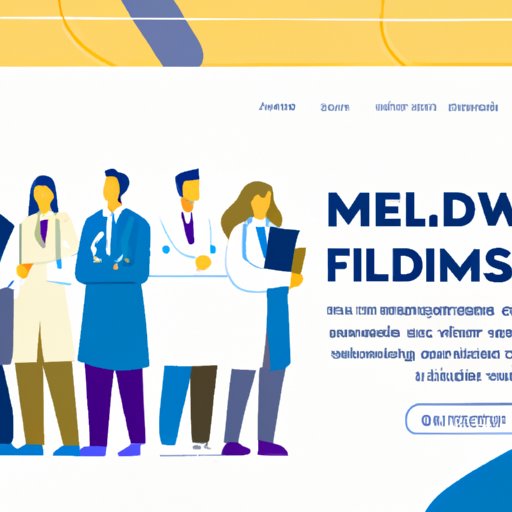
Introduction
As the field of medicine continues to evolve and become even more specialized, many healthcare professionals are seeking fellowship programs to gain the necessary training and expertise to further their careers. In this article, we will explore what fellowship in medicine is, its importance, the different types of fellowship programs, and the application process.
Understanding Fellowship in Medicine: A Comprehensive Guide
A fellowship in medicine is a postgraduate training program that allows healthcare professionals to receive specialized training in a specific medical field. Fellowship programs range from one to three years and provide in-depth education and training to enhance the knowledge and skills of healthcare providers. In addition, fellows receive hands-on experience in their specialty field by working alongside experts in the field.
The benefits of pursuing fellowship programs in medicine are vast. High-quality, specialized training allows healthcare providers to provide better care to their patients. Fellowships also provide opportunities to earn higher salaries and may lead to further research opportunities or leadership positions within an organization.
Fellowship in Medicine: What, Why, and How To Apply
The purpose of fellowship programs in medicine is to provide specialized training and experience for healthcare providers. These programs are designed to advance the knowledge and skills of individuals to become experts in their respective fields. Reasons for pursuing fellowship in medicine include further education, increased expertise in a specific area, and potential career advancements and higher salaries.
To apply for a fellowship in medicine, it is essential to research and identify suitable programs that match your career goals and interests. The application process typically involves completing an online application, submitting standardized test scores, a curriculum vitae, and personal statements detailing your goals and objectives for the fellowship program. Applicants will also need to secure recommendation letters from professional references. The application process may vary depending on the program, so it is critical to review the requirements carefully.
The Importance of Fellowship Training in the Medical Field
Fellowship programs in medicine provide specialized training and experience in various medical fields. These programs offer many advantages, including the ability to develop specialized skills and knowledge in a medical specialty, receive expert mentorship, conduct research, and participate in clinical practice. The specialized training that fellows receive provides them with opportunities to progress in their careers, potentially leading to leadership roles, increased demand for their services, and higher salaries.
Furthermore, fellowship programs offer unique opportunities to make a positive impact on patient care and outcomes. Health organizations desire providers who have specialized training because they can provide better care to patients with complex health issues. Physicians who have completed a fellowship in their specialty are typically more confident in their abilities and have a higher level of expertise in their specific field.
Exploring the Different Types of Fellowship Programs in Medicine
There are various types of fellowship programs available to healthcare professionals. Standard fellowship programs require one to two years of training and focus solely on specialty training in a particular medical field. Subspecialty fellowship programs, however, require at least two years of postgraduate training and provide specialized training within specific fields. Additional examples include research fellowships, global health fellowships, and educational fellowships.
The length of fellowship programs can vary depending on the specific program requirements, but typically range from one to three years. The ultimate goal of these programs is to provide in-depth training and experience to prepare healthcare providers to become experts in their respective fields.
Examples of specific fellowship programs include cardiology, oncology, pulmonology, gastroenterology, and hematology. These specialty programs aim to train medical professionals to acquire specialized skills and expertise in these specific fields.
Learning from the Masters: A Day in the Life of a Medical Fellow
Fellowship programs provide healthcare professionals with unique opportunities to increase their knowledge and skills within their specific medical specialty. A typical day for a medical fellow can range from consultation with patients and other healthcare professionals to participating in research opportunities and teaching medical students.
Fellows work under the supervision of experts in their field and participate in a wide array of clinical and research activities. Throughout the fellowship program, fellows also receive various educational opportunities, such as seminars, meetings, and conferences, that foster their development and skillset.
The Pros and Cons of Pursuing Fellowship in Medicine
Like any career move, pursuing a fellowship in medicine comes with its advantages and disadvantages. Pros of pursuing a fellowship program include specialized training, increased expertise in a medical field, potential for a higher salary, and enhanced opportunities for further research and career advancements. However, cons include the length of the program, an additional financial burden, and the competition for limited spots in these programs.
Despite these challenges, competing for a limited number of fellowship positions can be overcome by completing a detailed, comprehensive application that showcases the applicant’s strengths, research skills, interest in the field, and goals for their future career.

Breaking Down the Application Process for Medical Fellowship Programs
The application process for medical fellowship programs is intensive, with many requirements and deadlines to follow. However, by breaking down the application process into smaller steps, applicants can be successful and have a higher chance of being selected.
Typically, the fellowship application process includes submitting an online application, standardized test scores, a curriculum vitae or resume, transcripts, letters of recommendation from professional references, and a personal statement outlining the reasoning behind pursuing a fellowship in medicine and the goals of the fellowship program. It is essential to research and identify suitable fellowship programs and ensure that the applicant meets the specific program requirements.
Applicants should be organized and keep track of application deadlines to ensure timely submission of a complete application. Additionally, enlisting the help of mentors, peers, or other professionals throughout the process can provide valuable insight and revision support.
Conclusion
Pursuing a fellowship program in medicine is a significant investment in a healthcare professional’s career. Specialized training, expert mentorship, and the development of advanced skills and knowledge can provide unique and rewarding opportunities. By understanding the application process, the different types of fellowship programs available, and the benefits of such programs, healthcare professionals can make informed decisions about their careers and ultimately contribute to providing better care for patients.




